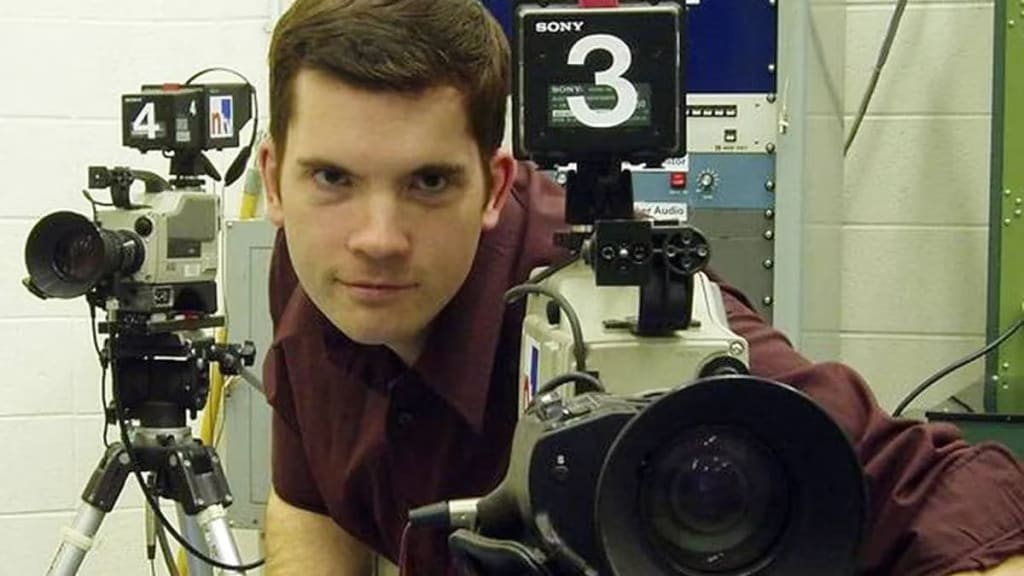
The Mark Twitchell case is one of the most shocking and disturbing murder cases in recent history. Mark Twitchell is a Canadian man who, in 2008, murdered 38-year-old Johnny Altinger. Twitchell's obsession with the TV show "Dexter" led him to commit a series of horrific crimes, including luring Altinger to his garage where he was killed. Twitchell even wrote a script based on his own experiences, which was eventually discovered by the police.
This book is an in-depth exploration of the mind of a serial killer, using the Mark Twitchell case as a starting point. We will delve into the psychology of serial killers, examining what drives them to commit such heinous acts, and we will analyze the Mark Twitchell case in detail, attempting to understand the motives and thought processes that led to his crimes.
Through interviews with experts in the field of criminology, as well as with Twitchell's family and friends, we will gain insights into the mind of a serial killer and the impact of his actions on those around him. This book is not for the faint of heart, but for those seeking to understand the darkest corners of the human psyche.
This chapter will explore the early life of Mark Twitchell and examine the factors that may have contributed to his eventual descent into serial murder. We will examine his childhood, his family life, and any early warning signs that may have suggested he was capable of such violence. We will also examine the role of genetics and brain chemistry in creating a serial killer.
Twitchell's obsession with the TV show "Dexter" played a significant role in his crimes. This chapter will explore the reasons why Twitchell was so drawn to the show, and how it influenced his behavior. We will examine the themes of the show and their connection to Twitchell's crimes, as well as the impact of popular culture on our understanding of violence.
This chapter will provide a detailed account of the murder of Johnny Altinger, including the events leading up to the crime and the aftermath. We will examine the evidence collected by the police, including Twitchell's script, and attempt to understand the thought processes that led to the murder.
This chapter will explore the police investigation that followed the murder of Johnny Altinger. We will examine the techniques used by the police to gather evidence and track down the killer, as well as the challenges they faced in the investigation.
Twitchell's trial was a high-profile case that garnered significant media attention. This chapter will provide an overview of the trial, including the evidence presented, the arguments made by the prosecution and defense, and the final verdict.
This chapter will provide an overview of the psychology of serial killers, examining the various theories that attempt to explain why some individuals are driven to commit such heinous acts. We will examine the role of childhood trauma, brain chemistry, and environmental factors in creating a serial killer.
The impact of Twitchell's crimes extended far beyond his immediate victims. This chapter will examine the impact of his actions on the families of his victims, as well as on the wider community. We will examine the ways in which people cope with trauma and loss, and the challenges of healing in the aftermath of such a devastating event.
The media played a significant role in the Mark Twitchell case, from the initial reporting of Johnny Altinger's disappearance to the sensationalized coverage of the trial. This chapter will examine the ways in which the media's coverage impacted the case, including the potential for bias and the challenges of balancing the public's right to information with the need for a fair trial.
Following Twitchell's conviction, the question of how to treat serial killers came to the forefront. This chapter will examine the various approaches to treating serial killers, including psychological interventions and incarceration. We will explore the debates surrounding the use of the death penalty and examine the potential for rehabilitation.
The Mark Twitchell case had a significant impact on the criminal justice system in Canada. This chapter will explore the ways in which the case impacted policing and investigations, as well as the legal system. We will examine the potential for reform and the lessons that can be learned from the case.
The popularity of true crime has exploded in recent years, but with it has come a number of ethical concerns. This chapter will examine the ethics of true crime, including the potential for exploitation and sensationalism. We will explore the ways in which true crime can be a force for good, as well as the potential for harm.
The aftermath of the Mark Twitchell case continues to be felt by those impacted by his crimes. This chapter will examine the ways in which the case has impacted the lives of those involved, including the families of the victims, the police, and the wider community. We will explore the potential for healing and the challenges of moving forward after such a traumatic event.
The legacy of Mark Twitchell is a complicated one. This chapter will explore the ways in which Twitchell's crimes have impacted the true crime genre, as well as the wider cultural impact of his actions. We will examine the potential for preventing future crimes through awareness and education.
Throughout this book, we have examined the Mark Twitchell case from a number of angles, but it is important to remember that at the center of this story are the victims and their families. This chapter will provide a space for victims' voices, allowing them to share their experiences and perspectives on the case.
In this final chapter, we will reflect on the lessons learned from the Mark Twitchell case. We will examine the ways in which the case has impacted our understanding of serial killers and the criminal justice system, as well as the potential for change moving forward. We will leave readers with a call to action, urging them to use the lessons of this case to create a safer, more just world.
About the Creator
Kawsar
"Welcome to my page!






Comments
There are no comments for this story
Be the first to respond and start the conversation.